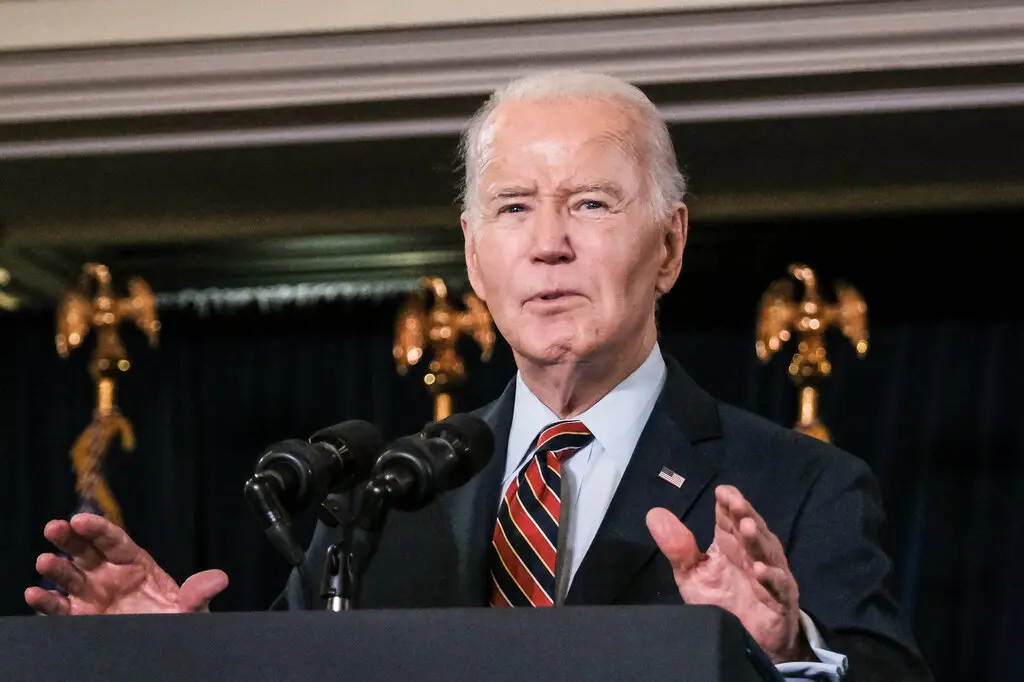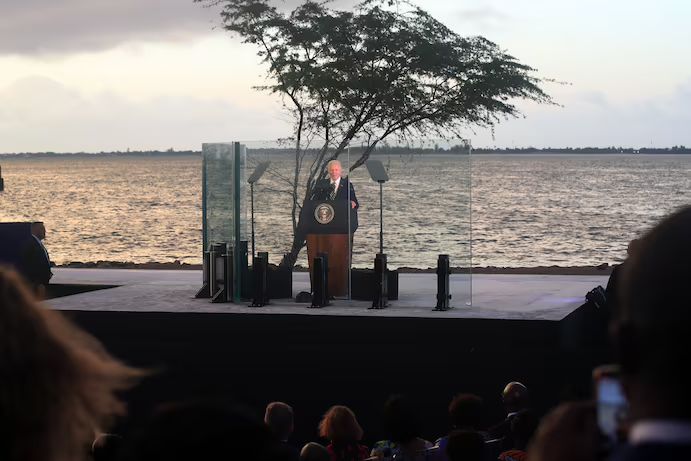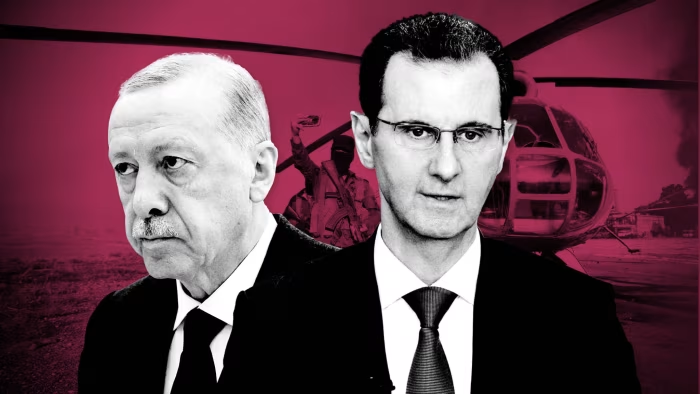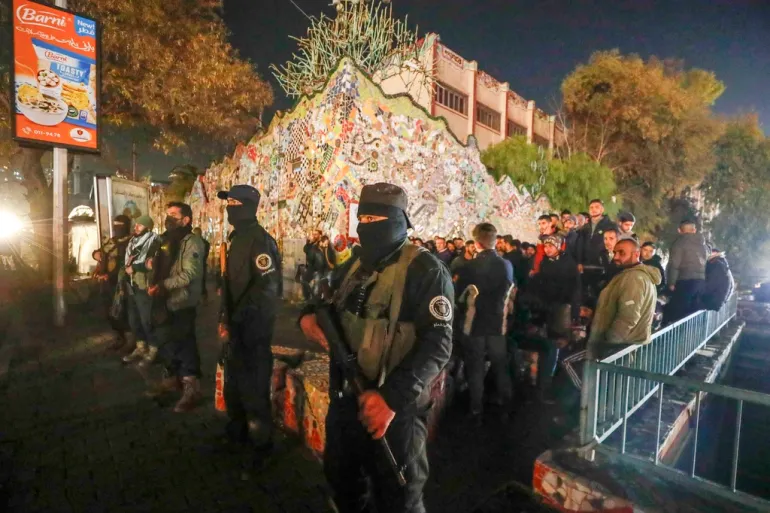Tinubu, Who Once Fled Nigeria Over Abacha’s Death Penalty, Now Faces Treason Charges
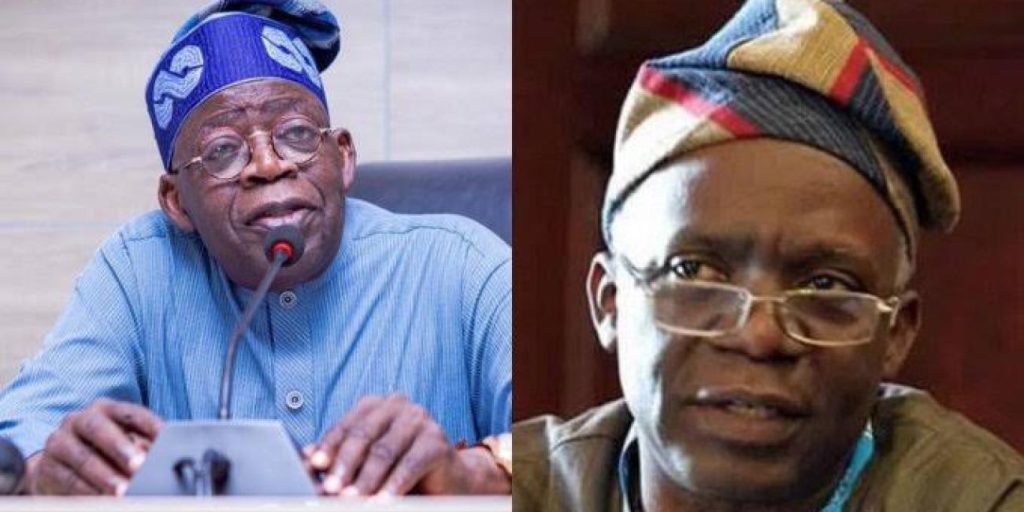
In a dramatic twist of fate, Bola Ahmed Tinubu, the current President of Nigeria, finds himself at the center of a historical and political paradox. Tinubu, who once sought refuge outside the country to avoid potential charges under the regime of the late General Sani Abacha, now stands in the political spotlight as President, while a storm of treason accusations brews around him.
The Past: Tinubu’s Flight from Nigeria
The political career of Bola Tinubu has been marked by resilience and strategic maneuvering. One of the most pivotal moments in his life was his escape from Nigeria in the late 1990s, during the military rule of General Sani Abacha. At that time, Tinubu was a vocal critic of the authoritarian regime and an ardent advocate for democracy. His opposition to Abacha’s government placed him in direct conflict with the powers that be, making him a prime target for arrest.
Faced with the threat of execution under Abacha’s harsh regime, which imposed the death penalty on perceived political opponents, Tinubu fled the country. The military junta, notorious for its brutal crackdowns on dissent, was in full control, and many of its critics met a tragic fate. Tinubu’s decision to go into self-imposed exile was seen as a strategic move to preserve his life and avoid the deadly consequences faced by others who had stood up against the regime.
Tinubu remained in exile for several years, during which time he continued to advocate for the restoration of democracy in Nigeria. His eventual return to the country after Abacha’s death and the subsequent return to civilian rule marked a new chapter in his political career. The 1999 return of democracy allowed Tinubu to take his place in the political arena, where he quickly rose to prominence, eventually becoming the Governor of Lagos State in 1999.
The Present: Treason Charges and Allegations of Political Machinations
Now, as the democratically elected President of Nigeria, Tinubu faces allegations that are strikingly reminiscent of the charges that once endangered his own life. In recent weeks, a new wave of treason accusations has surfaced, with critics suggesting that Tinubu may be involved in political machinations that undermine the very democratic institutions he once fought for.
The charges have centered on claims that Tinubu, during his time in office as governor and beyond, engaged in activities that could be construed as seditious or undermining the stability of the nation. These accusations have sparked a heated political debate in Nigeria, with some political observers drawing parallels between his past as an opposition figure and his current position of power. The charges, if pursued, could result in significant political fallout for the Tinubu administration.
One of the most striking aspects of this situation is the fact that Tinubu, who once fled the country to escape the wrath of a military regime, is now a central figure in a government that is accused of suppressing opposition voices. His administration has been criticized for its handling of dissent, with allegations of curbing free speech, suppressing protests, and intimidating political opponents.
A Controversial Presidency
Tinubu’s presidency has been contentious, and these new allegations of treason only serve to deepen the divide between his supporters and critics. While his administration has pushed for economic reforms and infrastructural development, it has also faced mounting criticism for its handling of security challenges and the growing economic disparity in the country.
Furthermore, opposition parties have seized on the treason allegations as evidence of authoritarian tendencies within Tinubu’s government. These accusations have intensified calls for a more transparent and accountable leadership, with demands for a full investigation into the claims of political subversion and betrayal.
Looking Forward: The Political Landscape of Nigeria
As the political drama surrounding President Tinubu unfolds, it raises fundamental questions about the trajectory of Nigerian democracy. Will Tinubu, once an icon of resistance, now be remembered as a leader who betrayed the very values he once espoused? Or will he manage to navigate the storm of allegations and secure his legacy as a reformist leader?
The coming months will likely determine the direction of Nigerian politics, as the government grapples with these serious charges while also attempting to address the country’s myriad challenges. For now, President Tinubu’s future remains uncertain, and the political dynamics of the nation continue to evolve under the weight of these high-stakes accusations.


